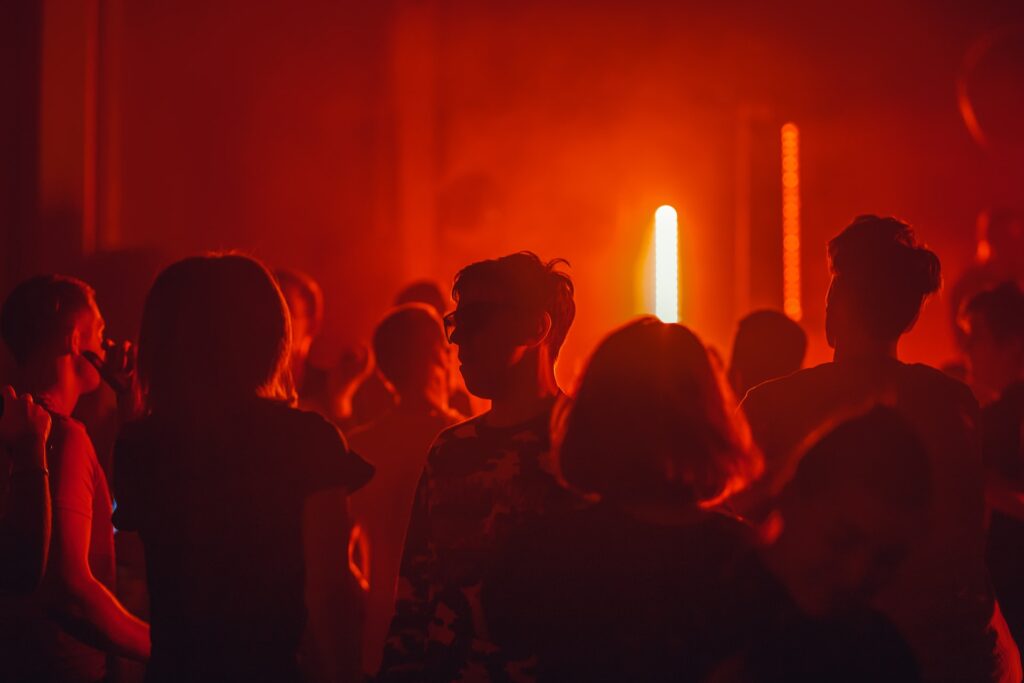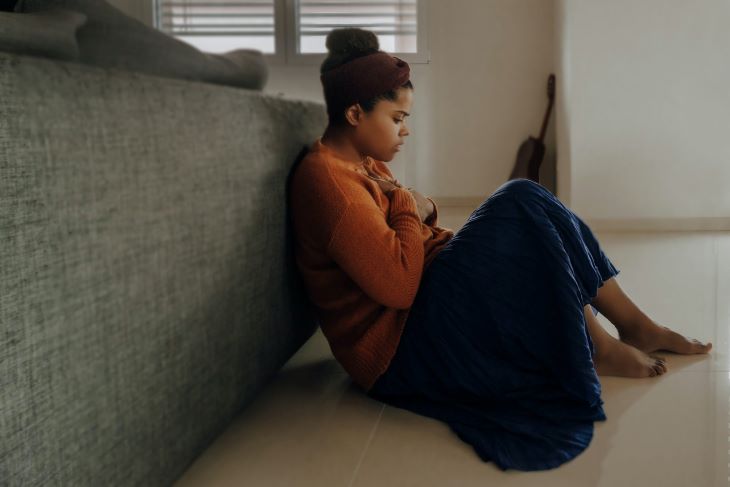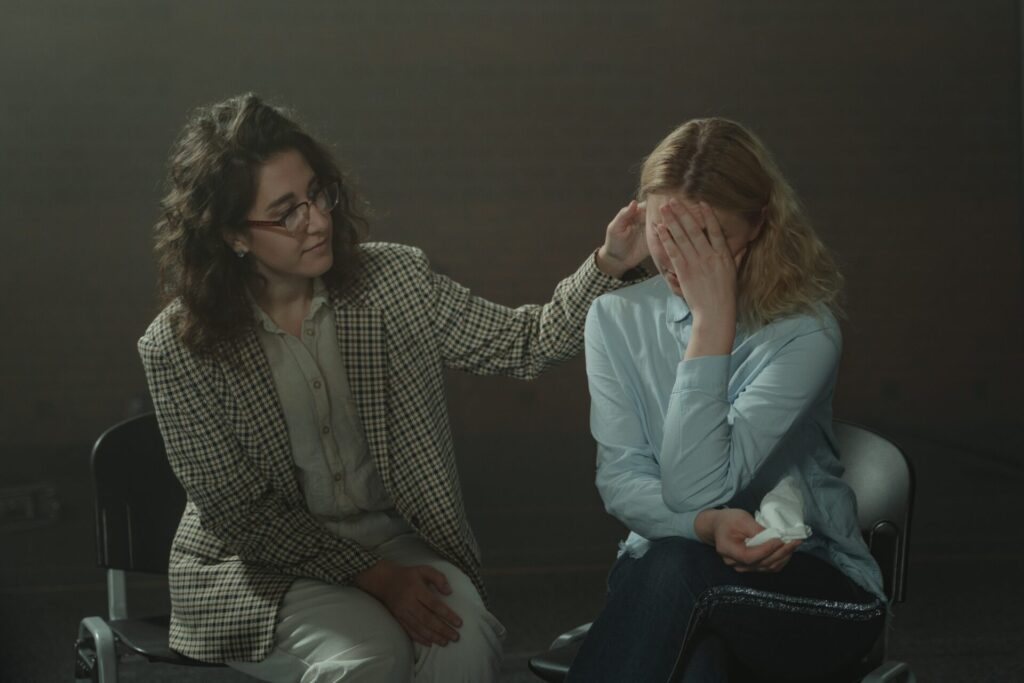Drug & Alcohol Rehab Blackburn & Near Blackburn
Quick Links for help with addiction in Blackburn and near Blackburn
- What is Drug and Alcohol Addiction in Blackburn?
- Inpatient Treatment at a Drug and Alcohol Rehab in Blackburn
- Therapeutic Methods at a Drug and Alcohol Rehab in Blackburn
- Finding the Right Drug and Alcohol Rehab in Blackburn
Drug and alcohol addiction is a problem which affects almost every community in the UK. It is on the increase in Blackburn and in the entire Lancashire area.
If you are personally concerned about alcohol and drug addiction, finding the right help is crucial.
When it comes to drug and alcohol rehab Blackburn, there are numerous options available.
Drug & Alcohol Statistics in Blackburn

While Blackburn has located just 15km from the city of Preston, Blackburn is the largest municipality in East Lancashire, making it susceptible to a range of addiction-related problems.
Despite receiving a £4m boost from the government to tackle drug and alcohol misuse, the Darwen area continues to feel the social, economic, and health-related impacts.
- In 2020, The Local Alcohol Profiles for England (LAPE) [1] revealed their annual statistics for the Blackburn area and highlighted a concerning mortality rate.
- Between 2019 and 2020, 61 Blackburn residents lost their lives in a hospital to alcohol-related illnesses, and a further 23 people died from alcohol-specific conditions.
- In the wider Lancashire county, 565 individuals died from alcohol-related conditions in the same year: marking community-wide tragedies.
While many individuals, unfortunately, lose their battle with addiction, many in the Blackburn area are still fighting the many health impacts of Substance Use Disorder (SUD).
Another 2020 report drawn up by the Lancashire government [2] stated that there were 9,000 hospital admissions due to alcohol and illicit substance consumption in the whole county.
Of this figure, Blackburn and Darwen accounted for 456 admissions, which is a similar rate to the rest of England.
All this shows that the Darwen area has a high number of residents in need of professional treatment at a drug and alcohol rehab in Blackburn. Here, they can manage their short and long-term symptoms while receiving a clear diagnosis of their condition.
Below, we provide some statistics about alcohol and drug use in Blackburn:
| Drug and Alcohol Statistics in Blackburn | Data | |
|
61 | |
| Deaths from alcohol-specific conditions in Blackburn between 2019 and 2020 | 23 | |
| Deaths from alcohol-related conditions in the wider Lancashire area (including Blackburn) | 565 | |
| Hospital admissions due to alcohol and illicit substance consumption in Blackburn and Darwen | 456 |
What is Addiction in Blackburn?
Over the years, substance addiction and those addicted to substances have been known by many different names.
While many of these are outdated and informed by harmful stigma, medical authorities have decided on a new name: Substance Use Disorder (SUD), to highlight the seriousness of this disease.
With its handbook in the Diagnostic and Statistical Manual of Mental Disorders (DSM-5), addiction is frequently described by experts as a brain disease of chronic relapsing.
Neuroscientists have designed the disease model of addiction [3]to explain how and why these changes in the brain occur.
According to the model, repeated drug or alcohol use changes the brain’s reward structures, activated whenever we experience something pleasurable. When an individual first uses drugs or has an alcoholic beverage, the feelings of relaxation or euphoria stimulate these reward pathways.
When an individual repeatedly uses an addictive substance, these reward structures will become dependent on the flood of dopamine being produced: causing individuals to lose their ability to function.
Over time, they’ll build an unhealthy tolerance and become unable to derive pleasure from activities they once enjoyed.
It’s at this point that substance dependence has transitioned into the realm of addiction: a place that is incredibly uncomfortable to live in.
Addicted individuals will notice an array of psychological and physical side effects that can only be properly alleviated at a drug and alcohol rehab Blackburn or near Blackburn.
Physical and Psychological Symptoms of Substance Use Disorder in Blackburn

Before a SUD victim tries to quit drugs or alcohol, their substance use will render them unable to live a comfortable existence. The high or pleasurable effects they once derived from drugs or alcohol are gone: replaced by impaired cognition, paranoia, extreme weight changes, digestive discomfort, and so on.
At this stage, many individuals realise that they need to regain their sobriety, but doing this without professional help will cause a range of withdrawal symptoms.
These side effects manifest when an addicted individual abstains suddenly from the substance they are addicted to; essentially, their brain and body cannot cope with the sudden change.
When going through psychological withdrawal, individuals may experience suicidal ideations, hallucinations, anxiety, depression, erratic behaviour, and more.
On top of this, SUD victims are likely to experience physical side effects which include migraines, fatigue, vomiting, diarrhoea, heart palpitations, and if severe enough, even seizures.
Based on their severity and the particular substance they’re addicted to, they’ll be recommended for inpatient care, a residential detox, or outpatient treatment organised by their chosen rehab clinic or hospital.
Outpatient Care at a Public Drug Alcohol Rehab Blackburn

Undertaking treatment as an outpatient [5] is usually facilitated via a publicly-funded, NHS rehabilitation clinic.
For patients who have a milder substance addiction, their outpatient programme may consist of 6 therapy sessions per week, whereas those undergoing the intensive outpatient plan may be required to attend around 30 hours of counselling across several days.
Unlike residential rehab options, outpatient programmes allow patients to return home each night, making their way to therapy appointments. This means they can maintain their chosen career, and continue upholding important responsibilities, interests, educational pursuits, or hobbies.
Because outpatients can return home and potentially encounter relapse triggers, these programmes are catered more towards milder SUD cases. Due to its less intensive structure, outpatient addiction treatment tends to last for a longer period: with therapy sessions continuing for months.
Inpatient Treatment at a Drug and Alcohol Rehab Blackburn

Image above: Group therapy at a drug and alcohol rehab in Blackburn
The above-mentioned treatment for addiction may benefit some, but for moderate to severe cases of SUD, residential treatment is optimal for recovery [6]. At a drug and alcohol rehab in Blackburn or near Blackburn, inpatients can opt to stay for durations of 30, 60, 90, or 120 days: including bespoke care throughout and aftercare procedures.
After selecting the clinic they’d like to attend, patients will receive an assessment of their unique disposition, health status, and addiction severity so that clinicians can design a treatment programme.
As opposed to returning home as an outpatient, those in recovery will remain on-site to receive a medicated detox, behavioural interventions, counselling modalities, and holistic support.
Moreover, patients suffering from additional mental health needs such as anxiety or depression should opt for residential treatment. This is because personalised care is needed to simultaneously treat both disorders, with on-site delivery crucial to prevent relapse.
While comorbid conditions are a driving factor to pursue inpatient treatment, addicted individuals should consider an array of factors in their personal lives. Some factors might make them more vulnerable to relapse and in need of on-site care such as medical conditions, poly-drug abuse, or a home environment where other people are using or are emotionally unsupportive.
Therapeutic Methods at a Drug and Alcohol Rehab Blackburn

Below, we outline some of the therapy methods used at drug and alcohol rehab in Blackburn or near Blackburn:
1. Cognitive Behavioural Therapy (CBT) in or near Blackburn
Victims of substance addiction frequently have mental health needs or negative behaviours that feed into their condition. Therefore, methods like Cognitive Behavioural Therapy (CBT) [7] must be integrated into their recovery plan at a drug and alcohol rehab in Blackburn. This form of guided discovery helps patients tackle the negative thought pathways underpinning their SUD.
When paired with other therapeutic methods, CBT sessions help patients improve their quality of life by teaching them new coping mechanisms and ways to reroute unhelpful thought patterns.
A CBT therapist can help you identify the cognitive distortions that are standing in your way, such as all-or-nothing thinking, catastrophic thinking, and negative predictions.
- CBT has several core principles that underpin its therapeutic strategies, and these are always at the fore of a therapist’s mind during sessions.
- Some CBT philosophies include: individuals can find relief from mental obstacles by identifying and using more supportive coping mechanisms, and that mental problems are based, in part, on unhelpful behaviours and assumptions.
During your CBT workshops, you’ll encounter a range of techniques designed to improve your state of mind and help you cope with substance cravings. These include exposure therapy, mindfulness, behavioural interaction, muscle relaxation, and breathwork.
2. Dialectical Behavioural Therapy (DBT)
This type of behavioural therapy helps patients address maladaptive thoughts and behaviours while integrating distress tolerance, and mindfulness techniques.
It is therefore geared towards patients who are exhibiting self-destructive behaviours (such as substance misuse) have experienced trauma, or struggle to regulate their emotions.
Dialectical Behavioural Therapy [8] at a drug and alcohol rehab in Blackburn follows 4 modalities to help patients overcome emotional distress ad build healthier ways of coping.
These are emotional regulation (learning how to manage feelings), distress tolerance (managing upsetting situations), mindfulness (grounding in the present moment), and interpersonal effectiveness (healthy communication and assertiveness).
Bringing all of this together is the balancing act between acceptance and change that is so important in DBT sessions. Patients are encouraged to accept themselves and their substance use disorder while working towards change mindfully. This allows for the development of coping mechanisms and healthy ways to deal with relapse triggers.
3. Family Therapy (FT)
The support provided by family members and close friends can often spell the difference between successful sobriety and future relapse. To rebuild this support system and ensure the recovery of everyone close to a SUD victim,
Family Therapy (FT) [9] forms a part of most treatment plans at a drug and alcohol rehab in Blackburn.
Individuals who have a problematic relationship with family members can be more likely to develop a substance addiction: making it imperative to tackle long-standing issues within a familial unit.
A family therapist can support open conversations between participants: allowing the addicted person to recognise the impact their condition has had on their family, and how this can be amended.
To help fortify the foundations of stronger, healthier relationships in a family, certain techniques are used in group sessions. These include open emotional expression, journalling, problem-solving, writing impact statements, and providing methods for improving relationship dynamics.
4. Holistic Therapy (HT)
Holistic Therapies (HT) were developed to approach addiction treatment from a new, non-medical angle. Participating in HT at a drug and alcohol rehab [10] in Blackburn can help patients heal from the spiritual, physical, and mental effects of SUD by relieving stress and regaining hobbies.
As such, the activities provided in alternative therapy programmes bridge the gap between emotional, physical, and psychological health. Suggested activities will depend on the patient’s needs and the traditional treatment methods they’re undertaking in conjunction with HT.
Some forms of Holistic Therapy focus on physical wellness: including movement therapy, yoga, pilates, martial arts, and weight training. Regularly moving the body has been proven to improve overall health while healing the mind. As such, it’s an invaluable tool for coping with cravings as they arise, and other forms of emotional distress.
Finding the Right Drug and Alcohol Rehab in Blackburn or Near Blackburn

Image above: Therapy at a rehab in Blackburn
We fully appreciate coming to terms with the fact you may have a problem with drug and alcohol-related addiction is the first hurdle you have to face. You will soon understand you will need urgent help to deal with your addiction.
The sooner you start to deal with the problem, the easier it will be for you to move on and avoid further problems.
It is all a matter of finding the right personalised treatment for you. But as we know, it is not only about the initial treatment. Ongoing support is just as vital. This is something the NHS can’t help you with you at all.
There is a range of treatments and care plans available within the private factor in Blackburn and the Lancashire area. We will draw on our experience and put you in touch with the right rehab facility for you.
There is no need to feel embarrassed at all. Many of our staff and advisors once found themselves in the same situation you do today.
They know it is a sensitive matter and will do their utmost to help you to find the right treatment. Please give us a call today, and we will help you to find the right care and rehab to fit in with your lifestyle.
Aftercare and Support Groups in Blackburn or Near Blackburn

The below organisations are free support groups in Blackburn, aiming to support people in recovery to remain abstinent.
Alcoholics Anonymous Blackburn (AA) helps individuals to reclaim their lives through supportive discussions, and often utilise a 12-step programme to help build recovery principles. Here you can meet others, and create lasting relationships with others in recovery.
Narcotics Anonymous (NA) focuses on providing people with a free, supportive community wherever they are in the world. Groups are present in communities worldwide and consist of those in recovery from illicit drug addictions. Meetings are led by a dedicated therapist to keep the group on track.
Cocaine Anonymous is a fellowship of men and women who share their knowledge, courage, and hope with one another in order to address their shared issue and aid those still struggling with addiction.
SMART recovery. meetings have an organised nature administered by qualified facilitators. They last around 90 minutes each week. The organisation’s main emphasis is on addictive behaviour, with a focus on the present and future.
Are There Free Drug and Alcohol Rehab Recovery Services in Blackburn?
Contact these publically-funded organisations to receive free assistance with addiction:
1. Spark – Blackburn with Darwen Recovery Services
Address: St Johns Court, 207 Ainsworth St, Blackburn BB1 6AR
Telephone: 01254495014
Website: https://sparkbwd.org.uk/
2. Assertive Outreach, near Blackburn
Address: The C V S Centre, 62-64 Yorkshire St, Burnley BB11 3BT
Telephone: 01506 657992
Website: https://www.changegrowlive.org/assertive-outreach-west-lothian
3. Thomas Organisation
Telephone: 0125459240
Website: https://thomasonline.org.uk/
Looking after your wellbeing as you navigate your addiction and your new life in recovery will be vital in helping you to stay sober. For mental health support, reach out Samaritans, Papyrus, Rethink Mental Illness, Mind, and Young Minds.
How Can Rehab Recovery Help in Blackburn?

For more information on detox and rehab options in Blackburn, contact Rehab Recovery today.
When you contact us, we shall outline a variety of treatment options that are available to you in Blackburn. This includes both private and statutory addiction treatments.
Find more rehabs in Lancaster, Preston, Chorley, Burnley, Morecambe, Grindleton, Bretherton, Salterforth, Thurnham, Claughton, Cockerham, Quernmore, Middleton, Gisburn, Balderstone, Whittington, Dalton, Over Wyresdale, Scotforth, Bracewell and Brogden, Newton, Dunnockshaw, Dutton, Borwick, Bispham, Great Mitton, Pendleton, Haighton, Burrow-with-Burrow, Aldcliffe-with-Stodday, Leck, Priest Hutton, Yealand Conyers, Bowland Forest Low, Osbaldeston, Bowland Forest High, Bashall Eaves, Downham, Gressingham, Bleasdale, Rivington, Gisburn, Hothersall, Claughton, Simonswood, Bowland-with-Leagram, Tunstall, Wennington, Paythorne, Dinckley, Ireby, Cuerden, Cantsfield, Horton, Roeburndale, Worston, Twiston, Easington, Newsholme, Little Mitton, Cuerdale, Mearley, Anglezarke, Barrow, Ingol, Tanterton, and many more towns and cities across Lancashire.
The centres we recommend all come regulated and approved by The Care Quality Commission (England and Wales) or the Care Inspectorate (Scotland).
When you get in touch with Rehab Recovery, our addiction specialists can offer you free advice and referrals, to a rehab in your preferred area. Many of our employees are in recovery, and have first-hand experience with what you’re going through.
For more information about rehab in Blackburn, contact Rehab Recovery on 0800 088 66 86.
References for Drug & Alcohol Rehab in Blackburn
[1] Local Alcohol Profiles for England https://fingertips.phe.org.uk/profile/local-alcohol-profiles/data#page/1/gid/1938132984/ati/402/iid/93763/age/1/sex/4/cat/-1/ctp/-1/yrr/1/cid/4/tbm/1
[2] Alcohol – Lancashire County Council https://www.lancashire.gov.uk/lancashire-insight/health-and-care/health/lifestyle/alcohol/
[3] The Brain Disease Model of Addiction https://www.hazeldenbettyford.org/education/bcr/addiction-research/brain-disease-model-ru-316
[4] Principles of Drug Addiction Treatment: A Research-Based Guide (2nd Ed.) https://books.google.co.th/books?id=mtMdJ3qqSnQC&printsec=frontcover&dq=addiction+treatment&hl=en&sa=X&ved=2ahUKEwiDlMP3zob3AhXiwjgGHYJtDZ8Q6AF6BAgDEAI#v=onepage&q=outpatient&f=false
[5] Rehab Recovery: Outpatient Addiction Treatment https://www.rehab-recovery.co.uk/addiction-treatments/outpatient/
[6] Rehab Recovery: Residential Addiction Treatment https://www.rehab-recovery.co.uk/addiction-treatments/residential/
[7] Addiction Counselling Competencies: The Knowledge, Skills and Attitudes of Professional Practice https://books.google.co.th/books?id=7UVgsB4tJH4C&pg=PA213&dq=addiction&hl=en&sa=X&ved=2ahUKEwiCmr60lIL3AhUkxDgGHSa2AJEQ6AF6BAgGEAI#v=onepage&q&f=false
[8] Rehab Recovery: DBT For Addiction Treatment https://www.rehab-recovery.co.uk/addiction-treatments/dbt/
[9] Rehab Recovery: Family Addiction Counselling https://www.rehab-recovery.co.uk/addiction-treatments/family-therapy/
[10] Rehab Recovery: Alternative & Holistic Therapies for Addiction https://www.rehab-recovery.co.uk/addiction-treatments/alternative-holistic/+


